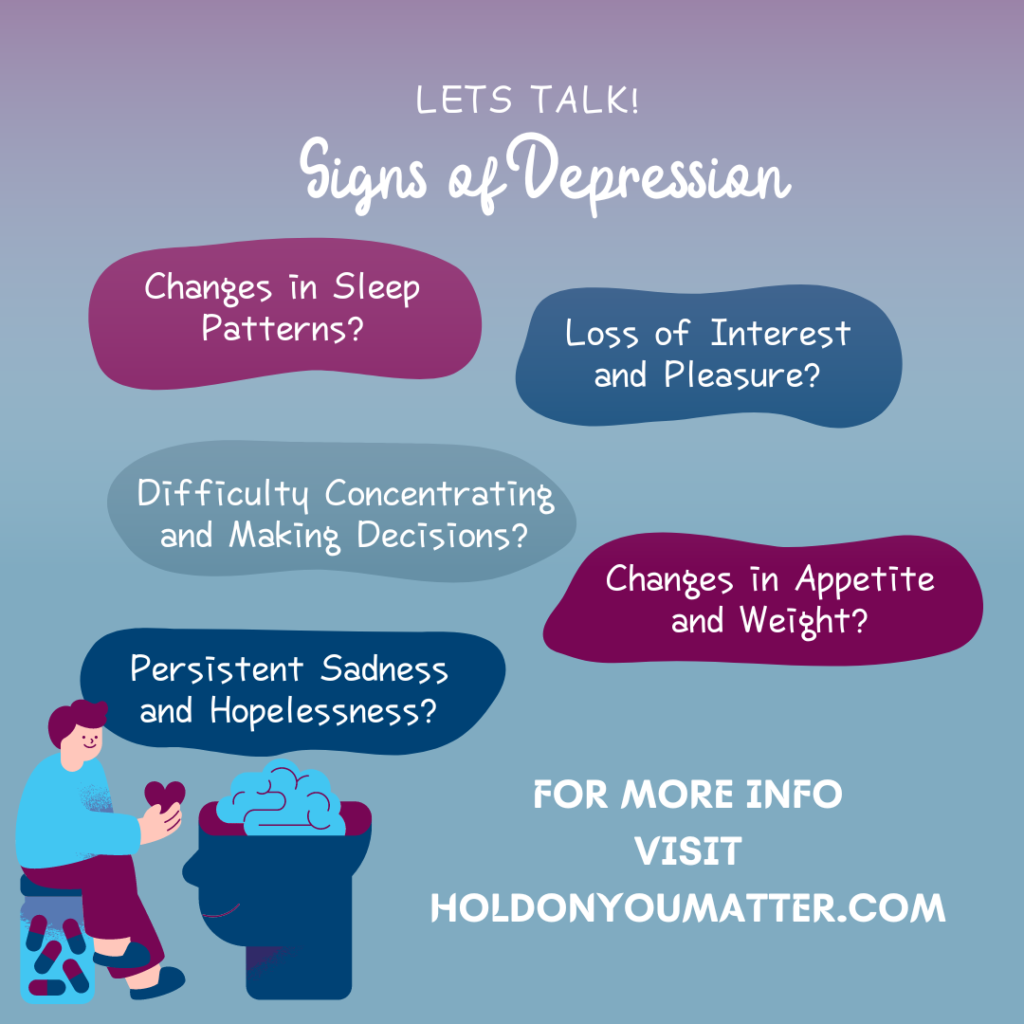In today’s fast-paced world, life can often feel like a never-ending race, it’s essential to prioritize our mental well-being. While depression is a common mental health condition that can affect anyone at any stage of life, it is often misunderstood and heavily stigmatized. It is important to understand the signs so that we can help our friends, family, and ourselves more easily navigate and cope with depression. Below are some big signs that someone might be struggling with depression.
Persistent Sadness and Hopelessness
One of the most common signs of depression is a pervasive sense of sadness that lingers for an extended period. Individuals that are experiencing depression may feel an overwhelming sadness that persists for weeks, months, or even longer. This sadness often accompanies a sense of hopelessness, as if life has lost its meaning and purpose.
Changes in Appetite and Weight
Depression can have a big impact on appetite and eating habits. Some people may experience a loss of appetite, leading to significant weight loss. On the other hand, depression can also trigger emotional eating and result in weight gain. Changes in eating patterns, whether an increase or decrease in appetite, can be indicative of emotional distress.
Loss of Interest and Pleasure
Depression can significantly impact one’s ability to find joy or pleasure in activities they once enjoyed. Hobbies, social interactions, and even daily tasks can become unappealing and burdensome. A person experiencing depression may withdraw from social gatherings, isolate themselves, or lose interest in activities they previously found fulfilling.
Changes in Sleep Patterns
Sleep disturbances are often observed in individuals battling depression. While some may experience difficulty falling asleep, others may find it challenging to stay asleep, waking up in the early hours of the morning. Conversely, depression can also lead to oversleeping, where individuals may feel constantly tired and struggle to get out of bed.
Difficulty Concentrating and Making Decisions
Depression can impair cognitive function, making it challenging to concentrate, remember details, or make decisions. Individuals may experience a decline in their ability to focus at work, school, or during conversations. This cognitive “brain fog” can further worsen feelings of frustration and lead to a sense of incompetence.
Recognizing the signs of depression is crucial for early intervention and support. It’s essential to remember that depression is a medical condition and not a personal weakness. If you or someone you know exhibits several of these signs for an extended period, consider reaching out to a mental health professional. For tips on how to improve mental health visit https://holdonyoumatter.com/tips-for-better-mental-health/
If you or someone you know is struggling or in crisis, help is available 24/7
Bucks County Mental Health Crisis Line: 800-499-7455
National Suicide Prevention Lifeline: Call or text 988 or chat 988lifeline.org
National de Prevencion del Suicidio: 888-628-9454
The Trevor Lifeline: 866-488-7386 The Trans Lifeline: 877-565-8860

